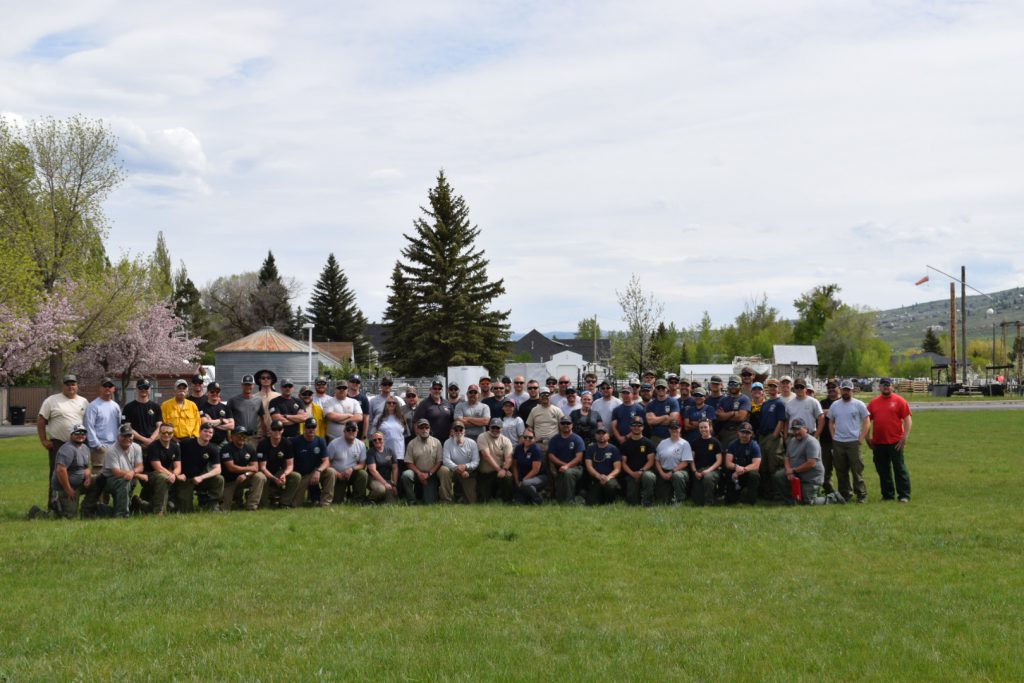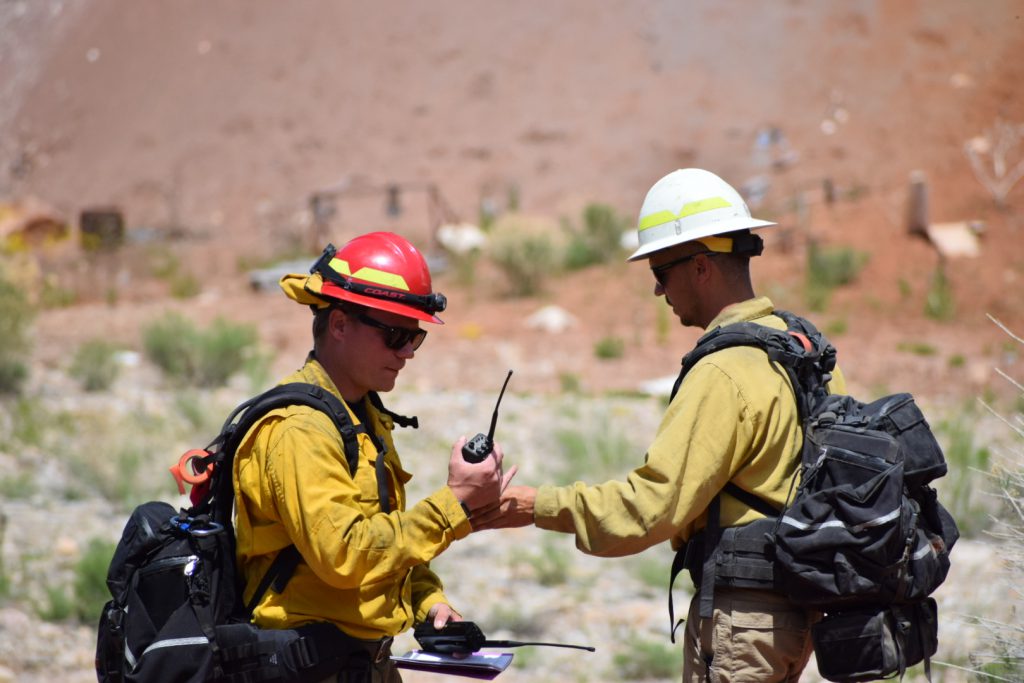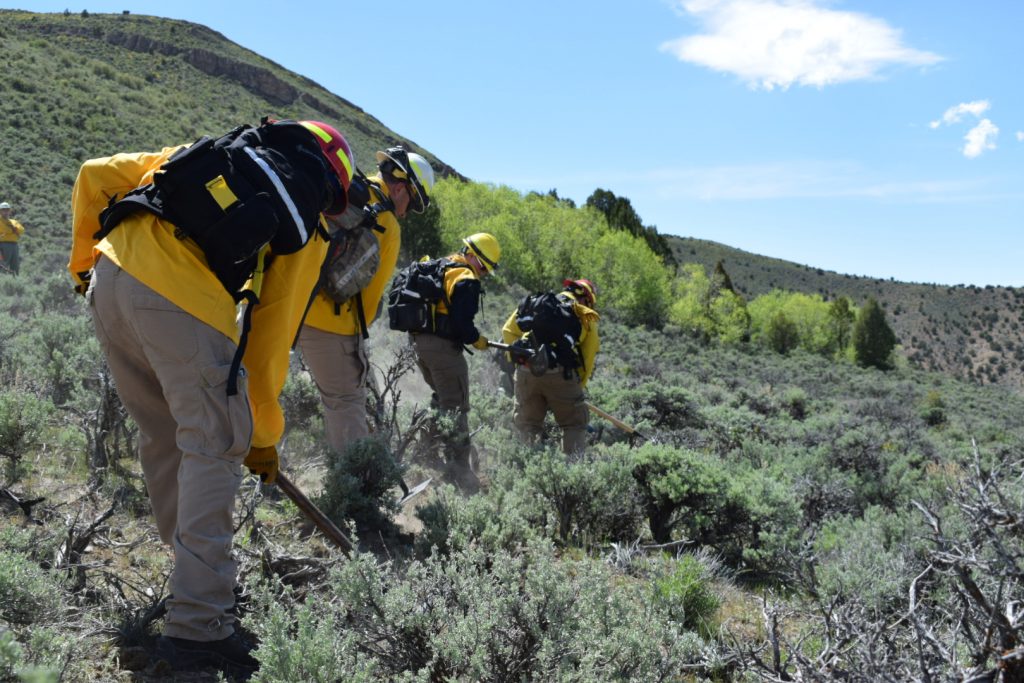
RICH COUNTY, Utah (June 6, 2022) – The Bear River Area of the Utah Division of Forestry, Fire and State Lands hosted a wildland engine workshop over two days at Bear Lake State Park. Twenty-one engines and over 100 personnel came from eight counties to participate in the workshop.
“Interagency work is the core of wildland firefighting. These local resources are important for the success we see on wildfires because of the involvement they have on the initial attack,” said Dustin Richards, Fire Management Officer for the FFSL Bear River Area.
Wildland firefighters received additional instruction in multiple areas to fine-tune their skills within a given area. Areas of instruction included wildland fire investigation, water and hose operation, and the use and maintenance of chainsaws.

Crews received hands-on instruction from an experienced cadre that focused on real-world scenarios.
“We had the participants rotate through different stations,” said Salt Lake County Fire Warden Robert Sanders. “Each area allowed them to experience mock situations, similar to what they would see when responding to a wildland fire.”
Participants also received hands-on experience with initial attack scenarios and classroom instruction. Each mock incident provided an opportunity for individuals to complete training items and adapt to unique challenges they may face in an ever-evolving environment.
Brad Johnson, Box Elder County Fire Warden, who acted as the Incident Commander of the engine training, stated the importance of practicing outside the classroom.
“We can talk about what we can do on a wildland fire in the classroom all we want,” said Johnson. “Experiencing these situations and having a hands-on approach helps us drive home the importance of communication and working with your crew members.”
Kristina Webecke, a participant from Box Elder County/Snowville Fire, was very appreciative of her training, which she can take back and share with her crew.

“This is the third one that I have been to, and they just keep getting better and better every time. I was the only one that came from our department, and I will be able to take this back to them,” Webecke said. “This helped me get mentally ready for the season, and it made a huge difference, I think, for everyone.”
However, not everything was centered on wildfire-specific training. Participants also had an opportunity to participate in a candid discussion with Unified Fire Authority’s Layne Hilton about mental health and the importance of first responders looking out for themselves and each other.
For more information on Utah’s wildland fire program and to learn more about wildfire prevention, please visit ffsl.utah.gov/fire, UtahFireSense.org, and UtahFireInfo.gov.
For up-to-date wildfire information, please follow @UtahWildfire on Twitter and Utah Fire Info on Facebook.
